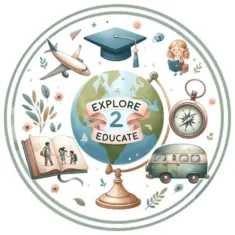Unschooling, a radical approach to education, has gained traction in recent years. It rejects traditional schooling in favour of self-directed learning, where children pursue their interests at their own pace. While it may seem like a dream come true for some, it’s crucial to weigh the pros and cons before embarking on this path.
What is Unschooling?
Unschooling is an educational philosophy that prioritises a child’s natural curiosity and intrinsic motivation. Learning is driven by the child’s interests, with real-life experiences and exploration forming the core of their education. There’s no set curriculum, no tests, and no homework. Instead, children learn through play, household activities, travel, social interactions, books, and any other resources they choose to engage with.
Pros of Unschooling
- Intrinsic Motivation and Love for Learning: Unschooling fosters a love for learning by allowing children to follow their passions. This intrinsic motivation can lead to deeper engagement and a lifelong thirst for knowledge.
- Personalised Learning: Each child learns at their own pace and in their own way. Unschooling caters to individual learning styles and allows children to delve into subjects that truly interest them.
- Real-World Experience: Learning is not confined to textbooks and classrooms. Unschooling encourages children to engage with the real world, gaining practical skills and knowledge through everyday experiences.
- Stronger Family Bonds: Unschooling often involves significant family time, leading to stronger bonds and deeper relationships. Parents become facilitators and mentors, guiding their children’s learning journey.
- Emotional Well-being: By removing the pressures of traditional schooling, unschooling can reduce stress and anxiety. Children are free to learn at their own pace, fostering a sense of autonomy and self-confidence.
- Creativity and Critical Thinking: Unschooling encourages creativity and critical thinking by allowing children to explore their interests without limitations. This can lead to innovative problem-solving skills and a more independent mindset.
Cons of Unschooling
- Socialisation Concerns: One common concern is that unschooling may limit social interaction. However, unschooling families often create opportunities for their children to socialise through community groups, clubs, and other activities.
- Structure and Discipline: The lack of structure can be challenging for some children. Unschooling requires self-discipline and motivation, which may not be innate in every child.
- Parental Commitment: Unschooling demands significant time and commitment from parents. They need to be actively involved in facilitating their children’s learning and creating a rich learning environment.
- College and Career Path: Unschooling may not follow a traditional academic path, which can raise concerns about college admissions and career prospects. However, many unschoolers successfully pursue higher education and diverse careers.
- Societal Pressure: Unschooling families may face criticism and skepticism from those who believe in traditional education. It’s important to be prepared for these challenges and have a strong support system.
- Potential Gaps in Knowledge: While unschooling allows for in-depth exploration of specific interests, it may also lead to gaps in traditional academic knowledge. Parents need to be mindful of this and provide opportunities for well-rounded learning.
Is Unschooling Right for Your Family?
Unschooling is a significant decision that requires careful consideration. It’s essential to assess your child’s personality, learning style, and your family’s values and resources. Here are some questions to consider:
- Is your child self-directed and motivated to learn?
- Are you comfortable with a less structured approach to education?
- Do you have the time and resources to facilitate your child’s learning?
- Are you prepared to address potential gaps in traditional academic knowledge?
- Do you have a support system in place for your unschooling journey?
If you answered yes to most of these questions, unschooling might be a good fit for your family. However, it’s crucial to research thoroughly, connect with other unschooling families, and create a plan that aligns with your child’s needs and your family’s goals.
Some parents have concerns about their children learning to read when unschooling, so we have an article dedicated to that topic – you can find it here.
Remember: Unschooling is a journey, not a destination. It requires flexibility, patience, and a willingness to embrace the unknown. But for those who embrace it, unschooling can be a rewarding experience that fosters a lifelong love for learning and empowers children to reach their full potential.


